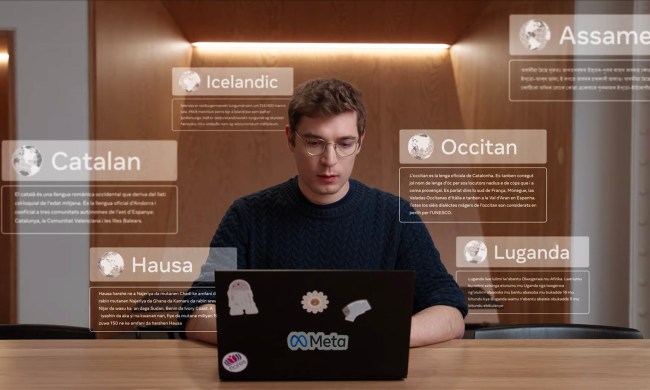On June 1, a group calling itself the #MyNameIs Campaign traveled from San Francisco to Facebook’s headquarters in Menlo Park, California to protest against the social network’s “fake name” policy, according to local Bay Area media. The group of about 60 people, which consisted of drag performers, members of the LGBTQ community, domestic violence victims, immigrants, and supporters, argue the particular Facebook policy is unfair and is being used against them.
If you aren’t familiar with Facebook’s policy, in a nutshell, Facebook requires people to use their “authentic” names. The company says this is so “you always know who you’re connecting with” and “help keep our community safe.” (It’s also why a single user is prohibited from having multiple accounts.)
If a Facebook account is deemed fake, users can report it, and Facebook can take action by suspending or even closing the account. But the protesters say that malicious users are using the policy to unfairly target them, particularly those in the transgender community who identify themselves under new names, or drag queens and kings who go by a pseudonym.
“It’s a tool that’s being used by bullies and bigots to maliciously target and report people they find objectionable,” Sister Roma, a drag queen who’s also one of the organizers, tells NBC News‘ Bay Area affiliate. “People who’ve done nothing wrong expect to exercise their right to self identify.” Roma argues that Bruce Jenner, who officially came out as a transgendered woman, would have trouble starting a Facebook account in her new identity.
As part of the protest, the group wants Facebook to remove the “fake name” reporting option, to stop asking for ID, and to create an appeals process if an account is wrongfully reported as fake.
But Facebook isn’t ignoring the issue. Its chief product officer, Chris Cox, had apologized to the LGBTQ community last October concerning the policy, clarifying that Facebook actually doesn’t require a person’s registered name, but one he or she best identifies with (Facebook also allows nicknames to be associated with an account). “Our policy has never been to require everyone on Facebook to use their legal name. The spirit of our policy is that everyone on Facebook uses the authentic name they use in real life,” Cox said at the time.
The company’s Facebook Safety division also just posted new information that further addresses the issue. Justin Osofsky, vice president of Global Operations, and Monika Bickert, head of Global Product Policy, stated that users will still have access to their accounts during the verification period, and that proof of identity doesn’t have to mean legal identification, but could be something like a magazine address label. The company says it had worked with local and national LGBTQ communities on the matter.
However, many in the affected group, as well as the Facebook community, feel Facebook isn’t doing enough. Lil Miss Hot Mess, a member of the protesting group, wrote in response: “Facebook has yet to offer any real proof – from your own analytics or academic research – that this policy offers any true protection.” Lil Miss Hot Mess also says, “Many of us have experience reporting clearly non-consensual sexual, violent, or hateful content that Facebook’s enforcement team oddly determines does not violate its standards,” suggesting a double standard.

